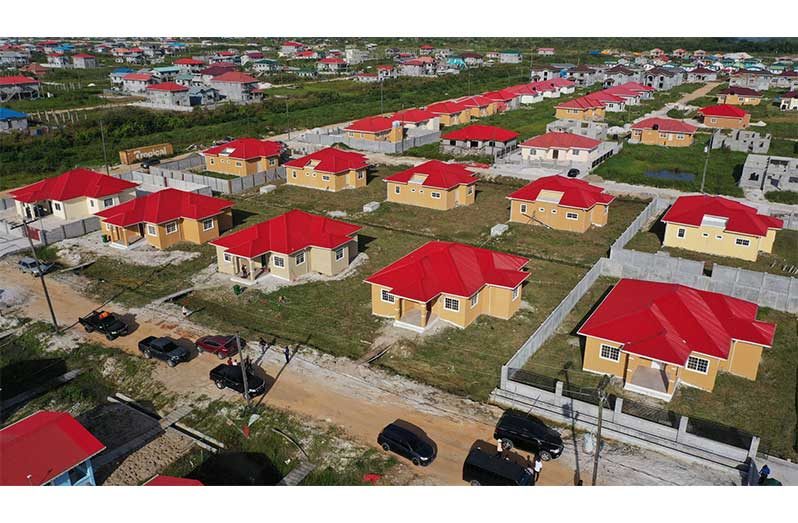THE People’s Progressive Party/Civic (PPP/C) government has made housing infrastructure a central focus of its agenda, investing approximately $250 billion since taking office in August 2020.
This significant investment has facilitated the development of 95 new housing schemes countrywide.
This aggressive push in the housing sector has allowed the administration to exceed its target of delivering 50,000 house lots to Guyanese by the end of its first term in office.
This was highlighted by the Minister of Housing and Water, Collin Croal, during a recent outreach in Linden, Region Ten.
He affirmed, “In just under five years, we have developed, and or completed 95 new housing developments.”
The minister highlighted that a key component of the government’s housing strategy involves the ministry allocating land for infrastructure development, as well as actively working to improve overall accessibility, thereby enhancing the quality of life for citizens.
He acknowledged that after surpassing the initial target of 50,000 house lots, the ministry needed to acquire additional land for new housing developments.
This expansion, along with implementing a comprehensive plan to cater to all ten administrative regions of Guyana, incurred significant costs.
Some of the new housing developments under the President Dr. Mohamed Irfaan Ali-led government include Balthyock, Amelia’s Ward, Charity, Yarrowkabra, Palmyra, Fort Ordnance, Williamsburg/Hampshire, Numbers 75 and 76 Villages, Moleson Creek, Felicity, Le Ressouvenir, Bartica, Mahdia, Mabaruma, and Kwakwani.
In Region Ten alone, more than $6 billion was invested in the development of housing infrastructure.
Over the four-and-a-half years, the government has implemented several measures that benefitted Guyanese on their path to home ownership.
These include working with commercial banks to secure low-income mortgages as low as three per cent, removing value-added tax (VAT) on building materials, and the steel-and-cement subsidy programme.
About 47 per cent of the 50,000 house lots that were allocated went to single women, while 54 per cent were allocated to young people between the ages of 21 and 35. Overall, 90 per cent were designated to low/middle-income families.



.jpg)








